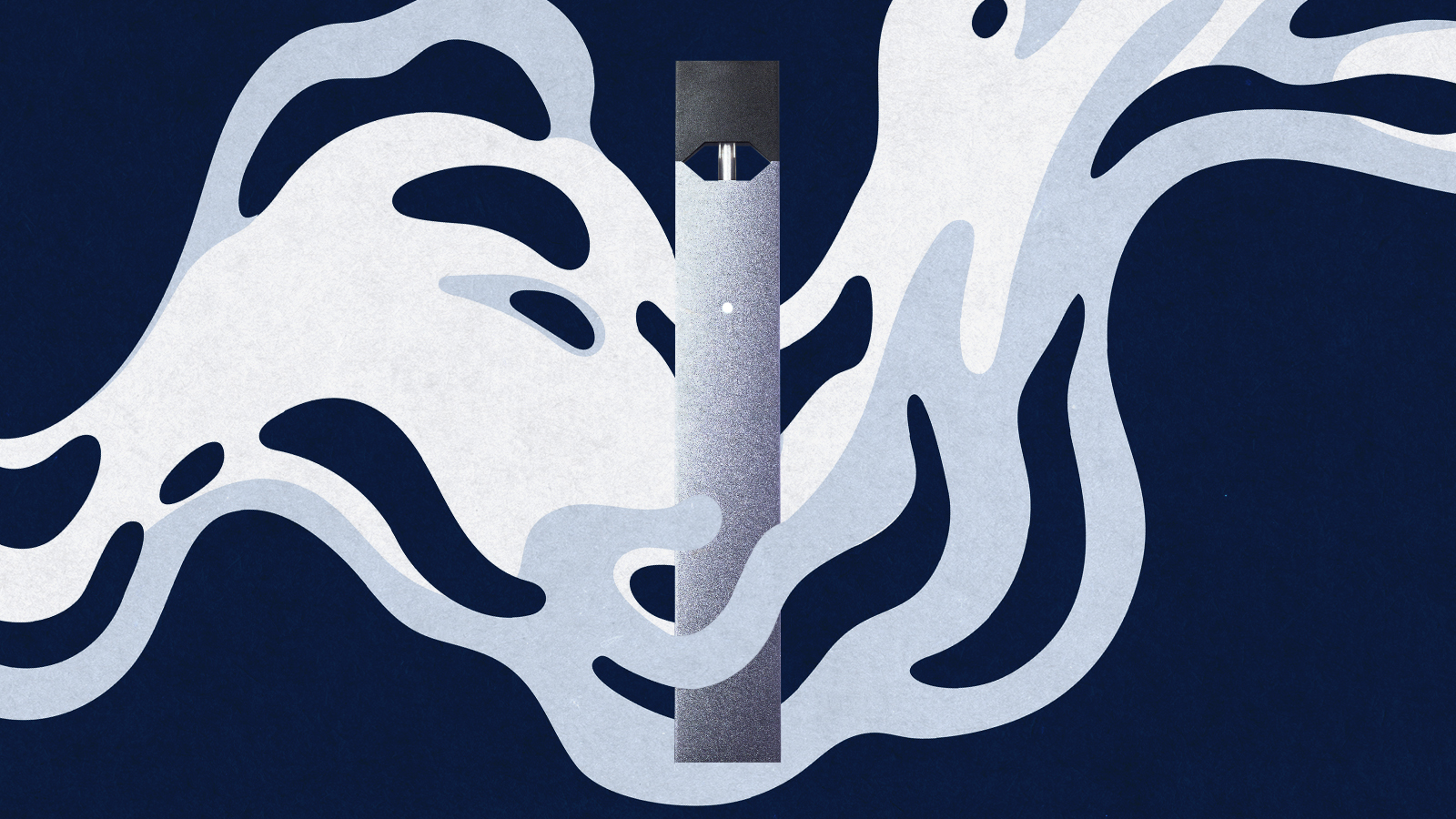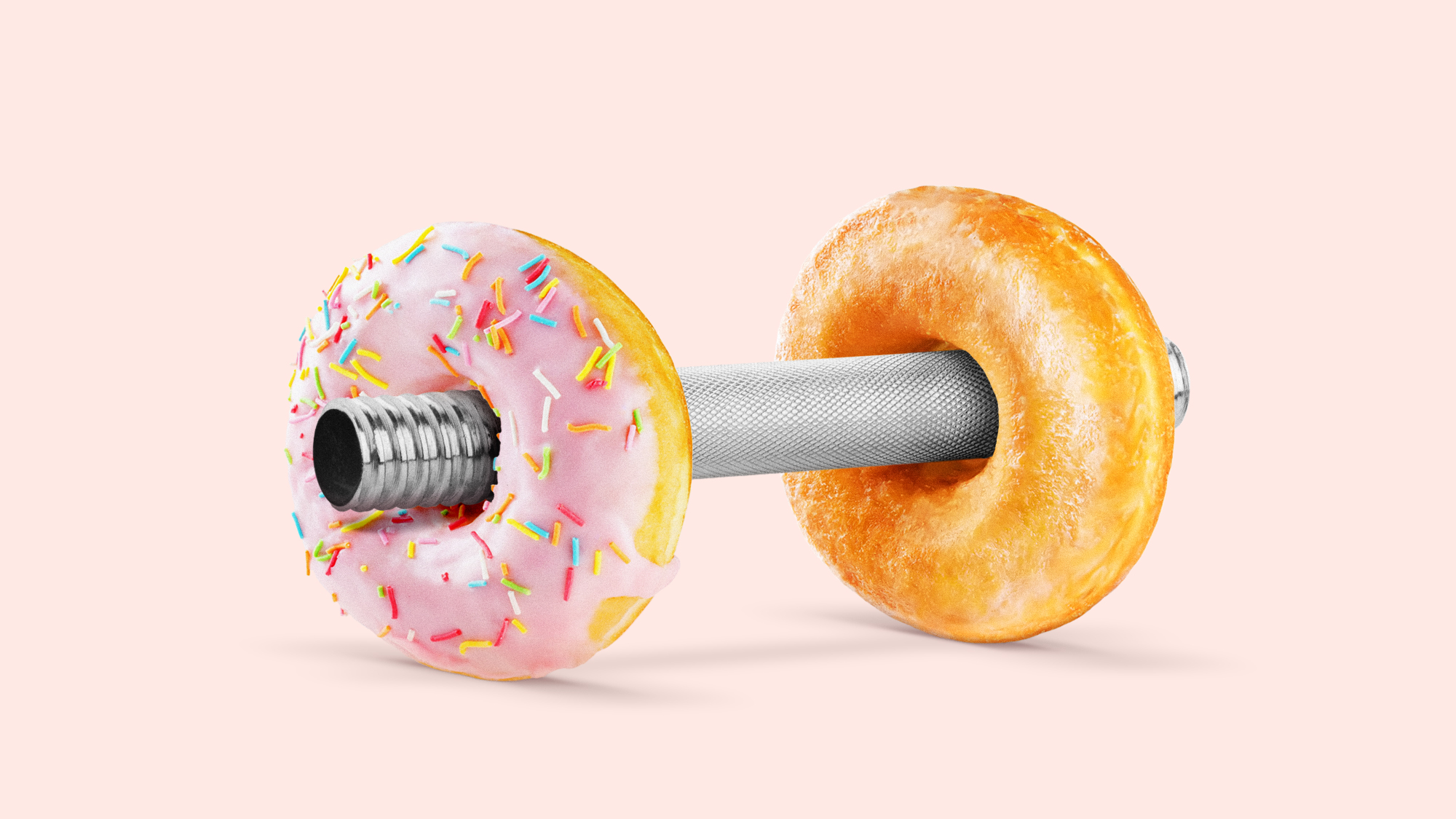The debate over banning Juul
The sharpest opinions on the debate from around the web


A free daily email with the biggest news stories of the day – and the best features from TheWeek.com
You are now subscribed
Your newsletter sign-up was successful
One of the country's biggest e-cigarette sellers could go up in smoke if the U.S. Food and Drug Administration has its way. Last Thursday, the FDA began sending letters to retailers, ordering them to pull all Juul products off their shelves. The next day, a federal appeals court paused the FDA order, allowing Juul to keep selling its products while the court hears arguments from the two parties.
The FDA claims Juul failed to provide "sufficient evidence regarding the toxicological profile of the products to demonstrate that marketing of the products would be appropriate for the protection of the public health." Juul said in a statement that the FDA's ban is "arbitrary and capricious."
Juul-ing to quit?
Banning Juul might not be the public health triumph it's chalked up to be, Time health correspondent Jamie Ducharme argued this week, pointing out that "adult smokers also use Juul to ditch cigarettes — and for them, last week's decision was not a victory."
The Week
Escape your echo chamber. Get the facts behind the news, plus analysis from multiple perspectives.

Sign up for The Week's Free Newsletters
From our morning news briefing to a weekly Good News Newsletter, get the best of The Week delivered directly to your inbox.
From our morning news briefing to a weekly Good News Newsletter, get the best of The Week delivered directly to your inbox.
Tim Andrews of Americans for Tax Reform likewise wrote in The Washington Times that pulling Juul products off the shelves "would cut off a proven method of helping millions of smokers quit, causing more people to smoke and more people to die." As proof, Andrews points to reviews that "have consistently found [e-cigarettes] between 2-6 times more effective than other smoking cessation devices" and to a Georgetown University Medical Center study, which estimated vapes could save as many as 6.6 million American lives over 10 years.
Jonathan Foulds, a professor of public health sciences at Pennsylvania State University, concurred: "Banning this lifesaving escape route from smoking because some 'potentially harmful chemicals' may leach from some pods is a bit like locking the door to the fire escape because the steps may be slippery," he tweeted.
What's worse? Juul or cigs?
In his Washington Times article, Tim Andrews further cites a "meta-analysis" of scientific studies on vaping, which was commissioned by the United Kingdom government and then "replicated by outside medical bodies," culminating in the conclusion that e-cigarettes are "95 percent safer than combustible tobacco." Bloomberg journalists Fiona Rutherford and Robert Langreth allowed that "some evidence suggests that vaping is a safer choice than lighting up" but claimed that there "isn't enough long-term data to make a definitive conclusion." Michael Bloomberg, notably, is a major funder of efforts to ban flavored vaping products.
Between April 2019 and February 2020, the U.S. saw an outbreak of E-cigarette or Vaping Product Use Associated Lung Injury (EVALI), which resulted in 2,807 hospitalizations and 68 deaths. Notably, 82 percent of those hospitalized were vaping cannabis, while only 14 percent exclusively vaped nicotine, according to the Centers for Disease Control and Prevention. The CDC also found that many of those killed or hospitalized were using unregulated, black-market THC products in their vapes. Cigarette smoking, by contrast, causes an estimated 480,000 annual deaths in the United States.
A free daily email with the biggest news stories of the day – and the best features from TheWeek.com
However, e-cigarettes might not be the healthy alternative some proponents claim they are. The Johns Hopkins School of Medicine notes that vapes have not received Food and Drug Administration approval for use as smoking cessation devices and that "a recent study found that most people who intended to use e-cigarettes to kick the nicotine habit ended up continuing to use traditional and e-cigarettes."
Think of the children!
In 2018, 30 percent of American high school seniors "reported vaping nicotine at least once in the past year," the largest increase in the use of any substance in at least 44 years, Jamie Ducharme wrote in a 2019 cover story for Time. A 2018 report from the National Academy of Sciences also showed that kids who vaped were also more likely to try real cigarettes. And though the FDA's "decision did not deal with Juul's relationship to youth vaping," according to The New York Times, "public health experts and lawmakers continue to express concerns about the additive nicotine in some e-cigarettes that remain on the market, including brands like Puff Bar, whose fruity flavors appeal to young people."
Still, that theory is very much up for debate. Writing for the conservative Independent Women's Forum, Lindsey Stroud argued that Juul is not encouraging kids to smoke. According to one survey, she wrote, "past 30-day use of Juul products among 12th graders declined by 46.9 percent between 2019 and 2021. Moreover, among 10th graders, use of JUUL declined by 75.3 percent in the same time period." The editorial board of The New York Daily News concurred, writing that Juul "largely fell out of favor with teen consumers" in the past few years. It was all just a fad. A vapor in the wind.
Grayson Quay was the weekend editor at TheWeek.com. His writing has also been published in National Review, the Pittsburgh Post-Gazette, Modern Age, The American Conservative, The Spectator World, and other outlets. Grayson earned his M.A. from Georgetown University in 2019.
-
 The ‘ravenous’ demand for Cornish minerals
The ‘ravenous’ demand for Cornish mineralsUnder the Radar Growing need for critical minerals to power tech has intensified ‘appetite’ for lithium, which could be a ‘huge boon’ for local economy
-
 Why are election experts taking Trump’s midterm threats seriously?
Why are election experts taking Trump’s midterm threats seriously?IN THE SPOTLIGHT As the president muses about polling place deployments and a centralized electoral system aimed at one-party control, lawmakers are taking this administration at its word
-
 ‘Restaurateurs have become millionaires’
‘Restaurateurs have become millionaires’Instant Opinion Opinion, comment and editorials of the day
-
 Stopping GLP-1s raises complicated questions for pregnancy
Stopping GLP-1s raises complicated questions for pregnancyThe Explainer Stopping the medication could be risky during pregnancy, but there is more to the story to be uncovered
-
 Tips for surviving loneliness during the holiday season — with or without people
Tips for surviving loneliness during the holiday season — with or without peoplethe week recommends Solitude is different from loneliness
-
 More women are using more testosterone despite limited research
More women are using more testosterone despite limited researchThe explainer There is no FDA-approved testosterone product for women
-
 Climate change is getting under our skin
Climate change is getting under our skinUnder the radar Skin conditions are worsening because of warming temperatures
-
 Food may contribute more to obesity than exercise
Food may contribute more to obesity than exerciseUnder the radar The devil's in the diet
-
 Is that the buzzing sound of climate change worsening sleep apnea?
Is that the buzzing sound of climate change worsening sleep apnea?Under the radar Catching diseases, not those ever-essential Zzs
-
 Deadly fungus tied to a pharaoh's tomb may help fight cancer
Deadly fungus tied to a pharaoh's tomb may help fight cancerUnder the radar A once fearsome curse could be a blessing
-
 Climate change can impact our gut health
Climate change can impact our gut healthUnder the radar The gastrointestinal system is being gutted
